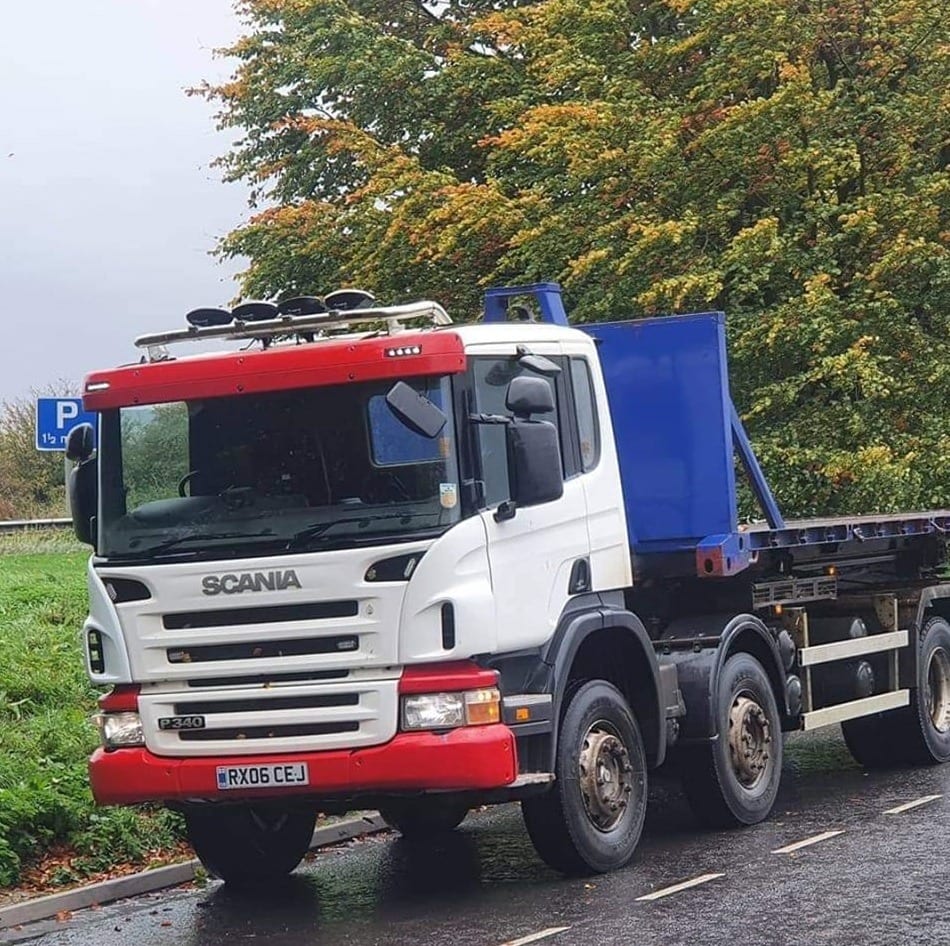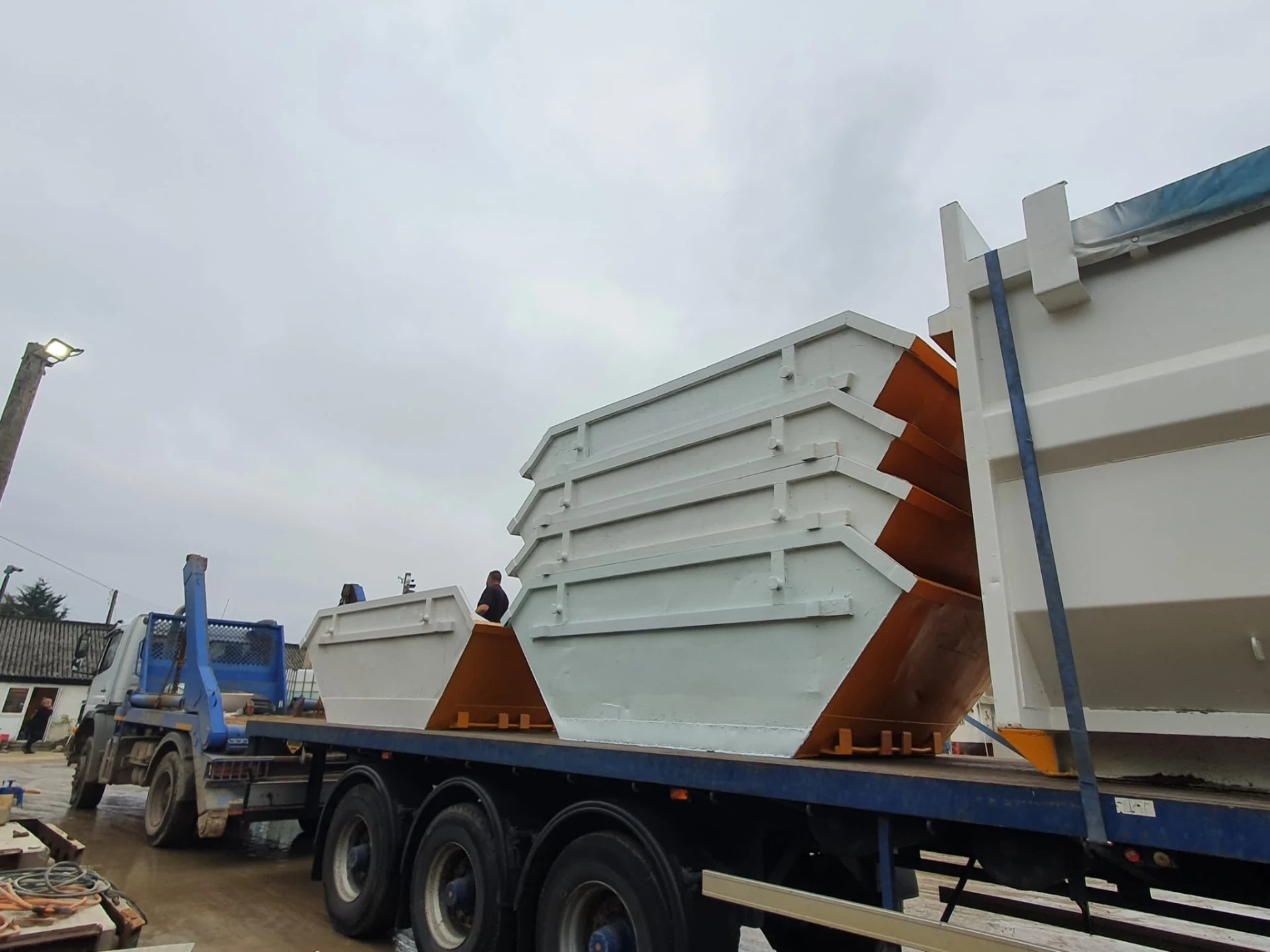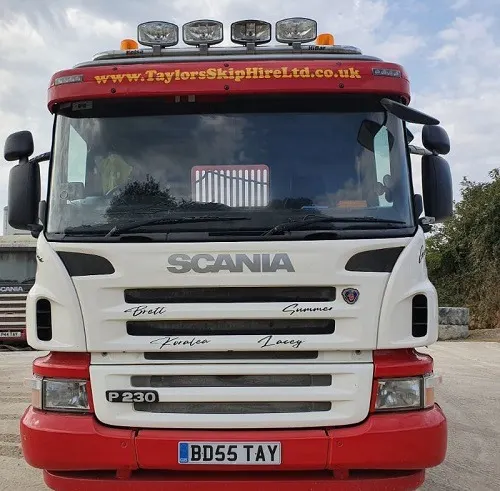Rubbish and Waste Glossary
While we try to keep skip hire simple, there's a lot of jargon when you get into the more complicated aspects of rubbish and waste management. Check out our glossary of terms below, and if we've missed anything out, please contact us!
- Anaerobic Digestion: A biological process producing biogas when organic wastes are broken down by microorganisms in the absence of oxygen.
- Asbestos: Materials containing asbestos fibres, requiring special handling due to carcinogenic properties. This cannot be put in a skip and should be disposed of by trained handlers.
- Biodegradable: Refers to materials that naturally decompose, typically organic waste.
- Builders' Skip: A popular skip size, typically 6 to 8 yards in volume, used on construction sites.
- Bulky Waste: Large waste items like fridges and furniture that require special disposal methods.
- C&D Waste: "Construction and Demolition" waste, including debris from building activities.
- Clinical Waste: Waste from healthcare activities posing infection risks, e.g., bandages, needles, that cannot usually be disposed of in a skip.
- Closed Skip: A skip with a lid, used for security or weather protection.
- Commercial Waste: Waste from trade, business, sport, or entertainment premises.
- Commingled Recycling: Collecting recyclable materials in one bin and separating them later at a facility.
- Compactor: Machinery that compresses waste materials.
- Contaminated Waste: Rubbish with harmful substances for humans or the environment.
- Downcycling: Recycling a material into a less structurally-sound material, such as converting plastic bottles into fleeces or carpeting.
- Drop Door Skip: A skip with a door that drops down for easier loading.
- Dry Waste: Predominantly dry waste like paper, cardboard, and wood.
- Duty of Care: A legal requirement of businesses to ensure proper waste management.
- E-waste: Electronic waste, e.g., old computers and phones.
- Energy-from-Waste (EfW): Generating energy from rubbish treatment rather than sending it to landfill.
- Extended Producer Responsibility (EPR): A policy making producers responsible for post-consumer product treatment or disposal.
- Fly Tipping: Illegally dumping rubbish on unlicensed land.
- Fly-Tipped Waste: Illegally dumped rubbish left outside of landfill or licensed facilities to avoid disposal fees.
- Green Waste: Biodegradable waste, e.g., grass cuttings and hedge trimmings.
- Grey Waste: Non-recyclable, non-compostable waste sent to landfills.
- Hazardous Waste: Waste posing threats to public health or the environment.
- Incineration: Burning rubbish at high temperatures for volume and toxicity reduction.
- Inert Waste: Non-biodegradable, non-hazardous waste like sand and bricks.
- Integrated Waste Management: Comprehensive waste prevention, recycling, and disposal program.
- Landfill: A waste disposal site by burial.
- Landfill Mining: Excavating and recovering materials from old landfills.
- Leachate: Liquid draining from a landfill, potentially hazardous.
- Lifecycle Assessment: Analysis of product environmental impacts throughout its lifecycle.
- Materials Recovery Facility (MRF): A plant where recyclables are sorted and prepared for reprocessing.
- Methane Recovery: Collecting methane gas produced by organic waste decay in landfills for energy.
- Mini Skip: The smallest skip size, for small jobs or garden waste.
- Muck Away: Removing surplus soil or rubble from excavation sites.
- Municipal Waste: Waste collected by local councils.
- Non-Hazardous Waste: Waste without immediate threats to human health or the environment.
- Open Skip: A lidless skip, typically for construction waste.
- Organic Waste: Decomposable waste, such as food scraps and yard trimmings.
- Pre-treatment: Treating waste before recycling, recovering, or disposing.
- Recovery: Using waste to replace other materials.
- Recyclables: Materials transformable into new products.
- Recycling Centre: A facility where waste is separated for reuse.
- Reprocessing: Turning waste materials into new products.
- Residential Waste: Waste from households.
- Roll-on Roll-off (RoRo) Skips: Large skips used for large volumes of waste.
- Sanitary Landfill: A site where waste is isolated from the environment until safe.
- Segregation: Keeping different waste types separate for recycling and specialised disposal.
- Skip Permit: A document for placing a skip on public property.
- Source Reduction: Reducing rubbish generation by modifying product design or manufacturing.
- Special Waste: Waste requiring special handling due to unique properties.
- Tipping Fee: A charge for a specific waste quantity at a processing facility.
- Toxic Waste: Waste harmful to humans, animals, or the environment.
- Transfer Station: A facility where waste awaits transfer to a final disposal site.
- Upcycling: Converting old or discarded materials into something useful.
- Vermicomposting: Using worms to decompose organic waste.
- Waste Audit: An assessment of an entity's waste production types and amounts.
- Waste Electrical and Electronic Equipment (WEEE): EU directive on electronic waste disposal responsibility, which call for electronics to be disposed of in licensed facilities.
- Waste Hierarchy: Waste management strategies classification by environmental impact.
- Waste Stream: Waste flow from its source to recovery, recycling, or final disposal.
- White Goods: Large household appliances like washing machines.
- Yard: A measurement unit in the skip hire industry, equal to three feet.
- Zero Waste: Redesigning resource life cycles for product reuse without landfill or incinerator disposal.




